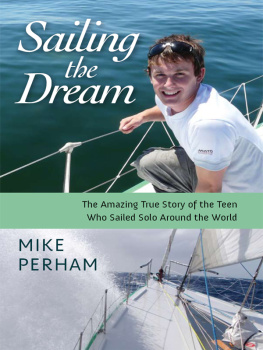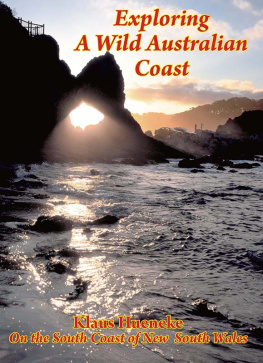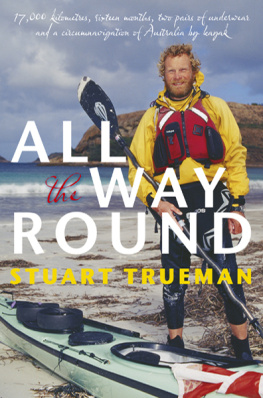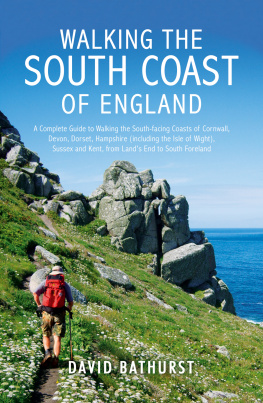and the memory of dear Louis.
Prologue
Storm at Sea
Days when the shit hits the fan, more often than not, start like any other day.
We set sail from Dale, on the south-west coast of Wales. The day was unremarkable; I vaguely remember some dampness in the air and the sun had yet to make itself known.
The water was calm as we moved gently out into the open sea. Astern, Milford Haven and its giant oil refinery, an incongruous sight on the otherwise naturally beautiful Pembrokeshire coast, slid slowly from sight. We would be fortunate to see land again.
I never sleep well on boats and in my half-awake melancholy, aided by the murky uninspiring scene around me, I was reminded that my previous knowledge of the area was through a story my father told about being refused permission to land the bodies of fellow seamen at Milford Haven, when he served in the Royal Navy during the Second World War. Death at sea, like in the mountains, is a very raw experience.
All around, the view was one of differing shades of grey. Even the land, before the sun illuminated its true colours, appeared in various dark hues and, ahead, softer shades of grey gradually blurred the sky with the sea, with no clear sign of the horizon. For the last two days a depression had been forming out over the Atlantic, but we felt we were well beyond its reach and, as we glided out to sea, we had little to worry us.
The yacht was a ten-metre Macwester Wight, a seaworthy craft with a centre cockpit. We were a crew of two. The skipper and owner, Dave, was my flying instructor on the army helicopter pilots course, and he had asked me to help him move the yacht from Northern Ireland to my home town of Gosport, on the Solent. It was August 1979 and we were on our summer flying course break. I wasnt sure how much I could commit to the voyage because my wife was due to give birth in early August, but my son Tom arrived on time and, although I had missed the sail from Northern Ireland to Wales, I joined Dave on 11 August in the ferry port of Fishguard.
On 12 August we sailed down the coast to Dale, a small village with some 200 inhabitants and a very hospitable yacht club. Henry Tudor landed here in 1485 before the Battle of Bosworth, after which he became Henry VII of England. From Dale we planned to head out into the southern part of the Irish Sea, heading to Penzance on the south-west tip of Cornwall.
I was twenty-seven years old and had been in the army for eleven years. I wanted to follow in the footsteps of my father in the Royal Navy, but when his objections to that way of life became clear, I joined the army instead. Even so, I guess I still inherited his wanderlust and perhaps a career in the navy may have kept me out of trouble a little better than the army did.
There was not much work to be done on board. The weather conditions were favourable, the sails had been trimmed and we continued on a relatively straight course, away from the coast, out into the Irish Sea. I suffer from mild seasickness and prefer to remain above decks, particularly when the sea starts to roughen, and to make sure I can do this while being gainfully employed, I am happy to spend extended periods on the helm. Dave on the other hand was content to attend to the sails, cook the food and to navigate. We soon settled into a small, content team.
By mid-morning we were still surrounded by shades of grey murkiness and it did not look as if the sun was going to appear. If anything, the grey hue had become gradually darker as the morning wore on. We decided to have an early lunch and, as we sat there drinking our soup, we watched, almost with detached interest, as the sky changed from a dark shade of grey to inky blue. We were not unduly alarmed this was, after all, the British Isles where the weather conditions frequently change and we were still optimistic that the changing sky was indicating nothing more sinister than a shower or two. There was certainly no thought about changing our plan to reach Penzance in one go and we happily sailed onwards, out into the Irish Sea, ever further from land and the safety of a harbour.
During the next hour, however, our pleasant day of sailing rapidly changed as the weather worsened at a pace that caused some significant concern. The sky continued to darken, menacingly, as if the sun had suddenly been eclipsed, and the previously placid sea started to simmer. It was not just the onset of bad weather that was giving us concern, it was also the speed with which we had to adjust to the worsening conditions. Within an hour we had gone from being on a relaxed cruise to having to cope with extremely heavy weather and it was getting worse by the minute. We put on foul weather gear and harnesses and shortened sail.
Dave was the skipper and the far more experienced sailor and I fully accepted any decisions he made. The yacht was without a radio (quite common at the time) and, therefore, without an up-to-date weather report, but with several hours of daylight left, we delayed any decisions about changing course until we were certain that what we were facing was more than passing heavy weather. The need for a quick decision, however, was forced upon us as the sky changed to a frightening, dirty black colour, and the sea changed from simmering bubbles to a churning mess in what seemed the same time it takes for placid water in a kettle to become a bubbling threat.
There was only one decision to be fair, given the direction of the storm, there had only ever been one option, even if we had taken the decision earlier and this was to run before the storm, from our position, which was by now well out into the Irish Sea, north-eastwards to reach shelter. Dave decided that Tenby on the south coast of Pembrokeshire, tucked in behind a small headland, would offer a safe haven.
An hour earlier I had been a participant in a pleasant sail, but now I was becoming concerned, although not yet frightened that would come later. We were now at the mercy of the sea and enormous waves carried us forward until their acceleration overtook us and we fell down into a trough to await the pity of the next wave.
Nature is a powerful force. We surged forward, then seemed to hover before falling off the top of the wave into the trough, where we would stall as successive waves took their turns in taking a grip of the yacht before driving us forward. Each time we thought conditions could not get any worse we were proved wrong. We could only hang on and do everything we could to keep the yacht from turning sideways and broaching, which in such an almighty sea, could well have seen the end of us.
We neared the coast, some ten miles or so to the west of Tenby, but instead of giving us comfort, the visual reference of landmarks hurtling past made us appreciate just how fast we were moving in such a monstrous sea.
At this stage our feeling of concern changed gradually to one of fear. How were we going to stop? We were totally at the mercy of the sea and in such weather conditions there was no hope of gliding safely into Tenbys small harbour with its protective sea wall and tidal basin. We could only hope that somehow we could pick up an offshore mooring and ride out this huge monster of a storm.













